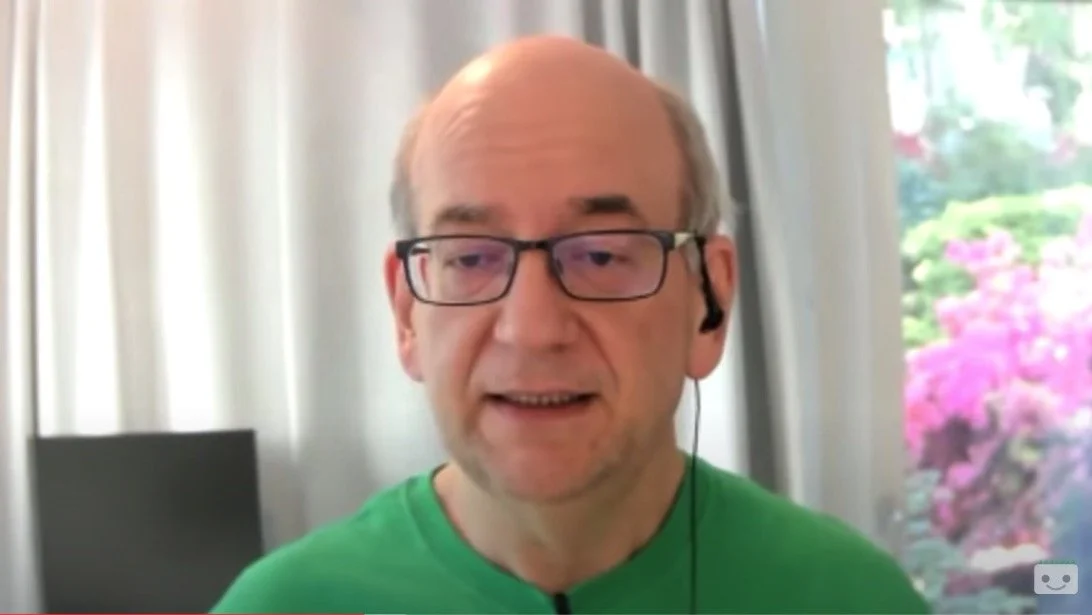Unlocking SEO Secrets: Genuine Insights and Facts Shared by Google's John Mueller
Last Updated: 8th Apr 2023 | Author: Billy Lindon
Understanding SEO can be challenging with all the theories and speculation, as Google's algorithms are not exactly public knowledge. However, John Mueller, Google's Senior Search Analyst and Search Relations Team Lead, occasionally shares valuable facts to help clarify these common misunderstandings.
In this article, you'll find a list of reliable facts and insider information that John Mueller has shared over time. It's a compilation of insights to help you gain a better understanding of SEO, straight from someone who knows the inner workings at Google.
13. Google makes assumptions about new content
This effect is sometimes called ‘The Honeymoon Period’ by SEO professionals.
“There’s kind of this period where we recognise the new content, we can crawl and index the new content but we don’t have a lot of signals for that new content yet. And then we have to make assumptions. And our systems try to make assumptions where they think this is probably in line with the rest of the website.”
“But sometimes those assumptions are on the high side where we say oh this is fantastic content, probably… And sometimes the assumptions are more on the lower side where we’re a little bit more conservative and like, uh we have to be careful with showing this new content. And that’s something where you’ll see that sometimes new content performs particularly well for a period of time and then it settles down again. Sometimes it performs kind of badly initially and then settles down in a higher state.
This is something which is essentially just our systems kind of trying to figure out where this new content should fit in before we have a lot of signals about the content.
In the SEO world this is sometimes called kind of like a sandbox where Google is like keeping things back to prevent new pages from showing up, which is not the case.
Or some people call it like the honeymoon period where new content comes out and Google really loves it and tries to promote it. And it’s again not the case that we’re explicitly trying to promote new content or demote new content. It’s just, we don’t know and we have to make assumptions.
And then sometimes those assumptions are right and nothing really changes over time. Sometimes things settle down a little bit lower, sometimes a little bit higher.”
John Mueller explains how Google makes assumptions about new content in search results
1. There is no ‘list of ranking signals’ anymore.
Previously, Google had revealed that there were over 200 different signals that its algorithms take into account when ranking content. More recently Google has officially moved away from this position, stating that it’s now misleading and creates a false impression of how its algorithms actually work.
“we’ve kind of moved away from the over 200 ranking signals number, because it feels like even having a number like that is kind of misleading in the sense that, ‘Oh Google has a spreadsheet with all of the ranking signals and they can just sort them by importance and tell me which ones they are’. And that’s definitely not the case.”
2. The number of backlinks pointing to a page is irrelevant.
It’s the quality of links that count.
“You could go off and create millions of links across millions of websites if you wanted to, and we could just ignore them all. Or there could be one really good link from one page out there that is, for us, a really important sign that we should treat this page as something that is relevant because it has that one link… So the total number essentially is completely irrelevant.”
3. It’s really hard to estimate how long changes will take to impact search results rank.
Google’s website crawler (GoogleBot) has something called a ‘crawl budget’. This is the amount of time Googlebot will spend crawling and indexing a website in one visit. The longer your pages take to load, the more of GoogleBot’s crawl budget is used up in simply waiting for content to load.
“How long that takes… yeah… it’s hard to say… it’s really hard to say… to re-crawl that across a larger site that can take a bit of time, especially if you make bigger changes like across everything if you change the structure of your website. I would assume something like that, just purely from a technical point of view would take… I don’t know… maybe a month.”
4. Core Web Vitals are vital, but relevance is still key.
Core Web Vitals are the way Google measures the loading of a web page from the perspective of a user’s experience. They are primarily focused on the loading speed of various elements, but also how stable the content of the page is while it is loading (Cumulative Layout Shift) and how long before the user can interact. Core Web Vitals data is collected and updated every 28 days.
“It is a ranking factor, and it’s more than a tie-breaker, but it also doesn’t replace relevance. Depending on the sites you work on, you might notice it more, or you might notice it less…
The other thing to keep in mind with core web vitals is that it’s more than a random ranking factor, it’s also something that affects your site’s usability after it ranks (when people actually visit).”
5. A Google Business Profile is essential for Local Search Results - and a clearly defined location on your pages.
“… what you’re looking at is a local service or local business, essentially. And for that I would make sure that you really have a really strong Google My Business [now Google Business Profile] entry set up. Because that’s something that can be shown a little bit easier in the search results for queries like this.
And in particular, queries that include something like “near me,” it’s not that you need to rank for “near me” because near me is essentially, like… global. It’s not something specific on your website.
But rather what you need to do there is just make sure that you have your location very clearly defined on your pages, so that we can recognise this location is associated with your website or with this page and the user is in that location.”
6. Google doesn’t count the number of words on a page.
For years various word count requirements have been bandied about the web by SEO professionals. “At least 300 words”, “1500 words for a blog or article” etc. In many cases a short, precise sentence can be picked up by Google and used as a featured snippet - one of the most covetted spots in search results - often known as ‘Position Zero’ because it is usually found at the top of result results above the number one organic result.
“We don’t use word count for ranking. It’s fine to use word counts for *yourself* as a guideline for your content, if it encourages better content from your writers.”
7. Headings are really important.
David Oglivy (‘The father of advertising’) is quoted as saying years ago:
“On the average, five times as many people read the headline as read the body copy. When you have written your headline, you have spent eighty cents out of your dollar.”
It seems the same may be true of Google, as John confirms that the headings are a strong signal that informs Google about the topic of a section or a page.
“when it comes to text on a page, a heading is a really strong signal telling us this part of the page is about this topic.
…whether you put that into an H1 tag or an H2 tag or H5 or whatever, that doesn’t matter so much.
But rather kind of this general signal that you give us that says… this part of the page is about this topic. And this other part of the page is maybe about a different topic.”
8. Keywords in the domain name are not a ranking signal.
To be filed under ‘oldie but goldie’, this debate has raged on for years after it should have been put to bed. John succinctly puts the final nail in the coffin of this myth:
“Just because a website has a keyword in its domain name doesn’t mean that it’s more relevant than others for that keyword.
In short, you don’t need to put keywords in the domain name.”
9. Good spelling and grammar is important.
As Google focusses more and more on high quality content, it goes without saying that the proper use of grammar and spelling more accurately relays a message; especially if it is being translated.
“We try to find really high quality content on the web and sometimes it can appear that a page is lower quality content because it has a lot of grammatical and technical mistakes in the text.
I would almost say spelling and grammar is probably for most websites a higher priority than broken HTML.”
10. It doesn’t take months for new pages to appear in search results
A quite common misconception is that it will take many months before your newly published pages appear in Google search results. In 2021 John posted a video on Google Search Central providing us with more detail on the subject.
John Mueller explains how long it takes for Google to index new pages.
11. Google doesn’t hate affiliates.
It seems any number of affiliate links are OK as long as the page contains some useful content.
“There is no limit. From our side it’s not that we’re saying that affiliate links are bad or problematic. It’s more a matter of, well, you actually need to have some useful content on your page as well. So that’s kind of the angle that we take there.
The amount of affiliate links that you have on a site is totally irrelevant.
The ratio of links to article length is also totally irrelevant.”
12. It doesn’t matter if your embedded videos are natively hosted or on Youtube.
“It’s essentially the same. It’s very common that you have a separate CDN (content delivery network) for videos, for example, and technically that’s a separate website. From our point of view if that works for your users, if your content is properly accessible for indexing then that’s perfectly fine.”
14. Include chart data in image alt tags.
It’s not enough to include a chart image on a page and paste the chart title into the alt tag. You need to make the data available to Google by putting it in the alt tag.
“If there’s any critical information in that chart that you need to get across then put it in the alt attributes. So that we can pick it up as text, so that people who can’t see the image can also get that information.”
14. Google doesn’t understand sarcasm
Much like The Big Bang Theory’s Sheldon Cooper, Google’s algorithms don’t understand sarcasm and will take narrative explicitly as written.
“I would say there’s definitely a risk that we misunderstand things like that or that we don’t understand when there is sarcasm on a page. And especially if it’s something where it’s really critical for you to get the right message across to Google and to all users then I would make sure it’s as clear as possible. So maybe in cases where you’re talking about medical information, maybe try to avoid sarcasm.”



